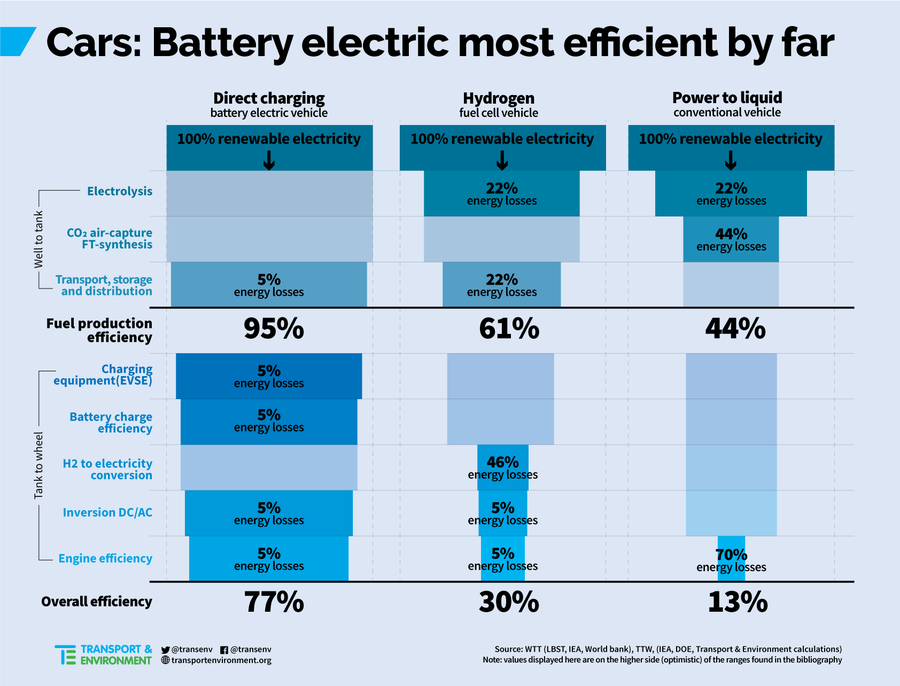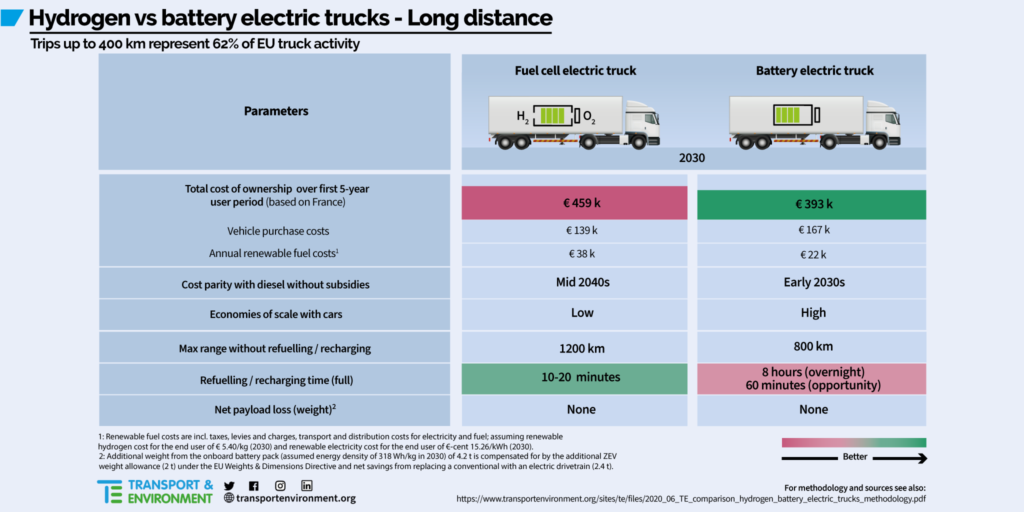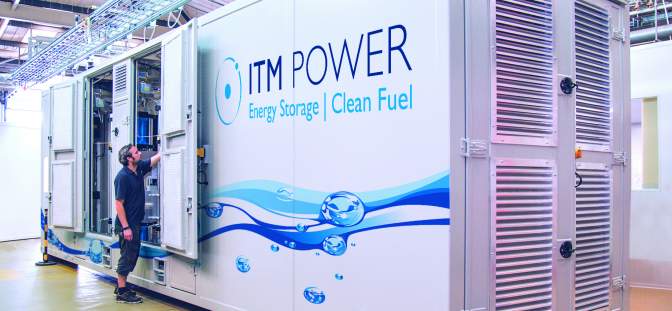For a few decades, different groups have defended hydrogen systems as a future alternative for transport, first with all kinds of vehicles. Now, little by little, they direct their efforts to heavy and industrial vehicles. But the problem is that it is an option with significant challenges still to be overcome, starting with the need to create an extensive refueling network, since nobody can do it at home, and above all having to face an investment that will take us to a much less efficient system than options such as battery-powered vehicles.
The organization Transport Environment (T&E) has presented a graph that affordably allows us to see the scene of cars equipped with a hydrogen fuel cell, compared to the current one with liquid fuels and also to one with battery-powered electrical systems.
This scenario anticipates a green production of hydrogen, which is still a path with a specific way ahead, but technologically possible thanks to the substantial expansion of renewable energy. Something that in itself would be a point in its favor compared to a system using internal combustion engines that stars in most trips, being by far the least efficient technology and the one with the best refueling infrastructure.
But from the wind farm, solar, or the other renewable sources to the car, there is a process where the losses can make the energy that reaches the vehicle less.

In the case of the hydrogen model, a 22% energy loss is taken into account when transforming electricity from renewables into hydrogen. A figure already considerable in itself. But then you have to transport that hydrogen and re-store it in large tanks at service stations. A new intermediate step that takes according to the report another 22% of the energy produced initially. Before reaching the vehicle, we have already lost 39% of the power.
And we are still halfway to converting the energy from renewables into electricity that powers car engines. A transformation process assumes 31% of the energy, which leaves the net efficiency at just 30%. This means that 70% of the electricity we have produced with renewables will be lost along the way.
In the case of battery-powered electric models, it is estimated that the transport process consumes just 5%. A figure that will depend on the distance between production and consumption of it. Then, processes such as the recharging points come into play, with 5% of losses, another 5% of the charging process, and 5% of the losses of an electric motor. In total, we will have achieved an efficiency of 77%. An aspect that we can improve a lot in case of having a photovoltaic installation in our home or company, or that a solar system can also power the recharging point.

The conclusion is that hydrogen is an alternative to decarbonize the system replacing diesel or gasoline systems. But all at the cost of technology with a deficient level of efficiency, which will translate into a much less competitive technology than opting for a more effective system such as that of batteries, whose main challenges, autonomy and recharge times, they will be able to solve with investment in existing technologies.
A reality that will affect individuals, where there is no discussion of which technology is more effective. In the medium and long term also industrial transport vehicles, where companies will have to decide whether to opt for a safe system in autonomy and recharging times like hydrogen, but at a much higher cost.

